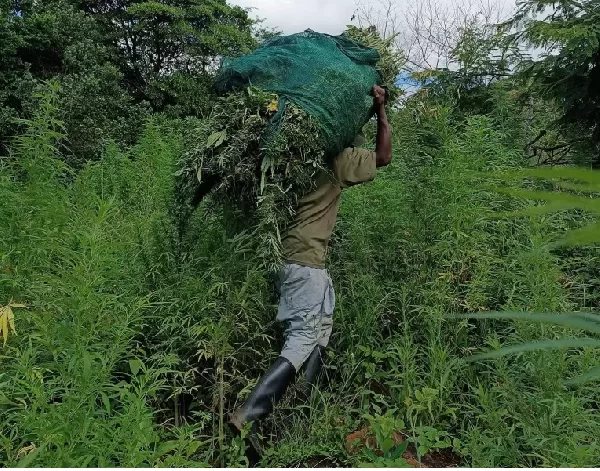A landmark decision makes South Africa the first African nation to allow recreational marijuana.
On the eve of a major election, President Cyril Ramaphosa signed the Cannabis for Private Purposes Act. This removes cannabis from the list of illegal drugs, allowing adults to grow and consume the plant at home (except around children).
Activists See Room for Improvement
While celebrating the progress, activists point out limitations. Selling cannabis remains illegal, with a thriving grey market already in existence. Uncertainties exist regarding expunging criminal records for past cannabis offenses.
Long History of Cannabis in Southern Africa
Cannabis has a long history in the region, used by various cultures for medicinal and recreational purposes. Colonial era laws criminalized its use, with the apartheid government enacting harsh penalties.
Legal Challenges Lead to Change
A 2018 court ruling declared the ban on private cannabis use unconstitutional. This spurred the government to draft legislation, with the Cannabis for Private Purposes Act finally being passed in 2024.
The Fight Continues
Activists are now pushing for legalization of cannabis sales and commercial production. They believe overcoming societal prejudice and educating lawmakers is key.
A Cautious Approach May Benefit South Africa
Experts believe South Africa’s cautious approach avoids issues seen in other countries, like Thailand’s rapid legalization leading to a backlash.
Domino Effect on the Continent?
South Africa’s move is being watched closely by other African nations. While some have legalized medical marijuana or decriminalized possession, South Africa is the first to allow recreational use.
Eswatini’s Concerns
Eswatini, a small kingdom surrounded by South Africa, is considering revising its cannabis laws. Local growers fear losing out to South African producers due to the new legislation. They advocate for legalization and trademarking their own strains.
The Future of Cannabis in Africa
South Africa’s decision is a significant step, with the potential to influence cannabis policy across the continent.


